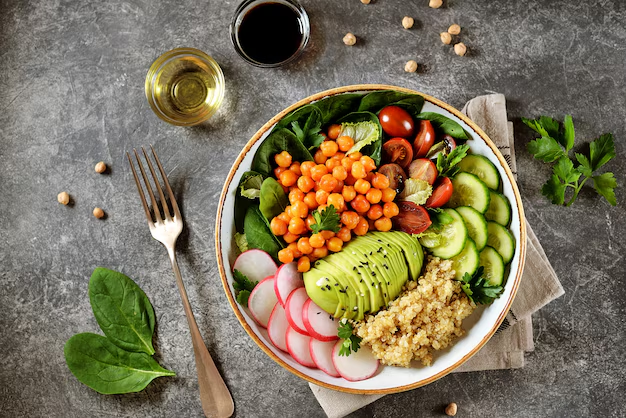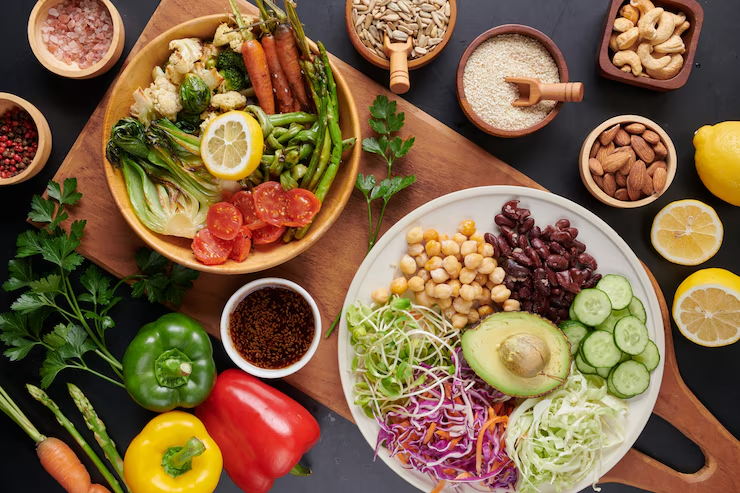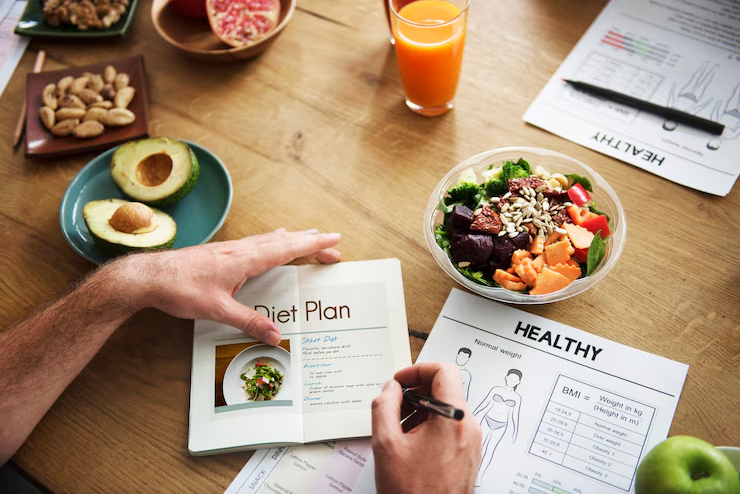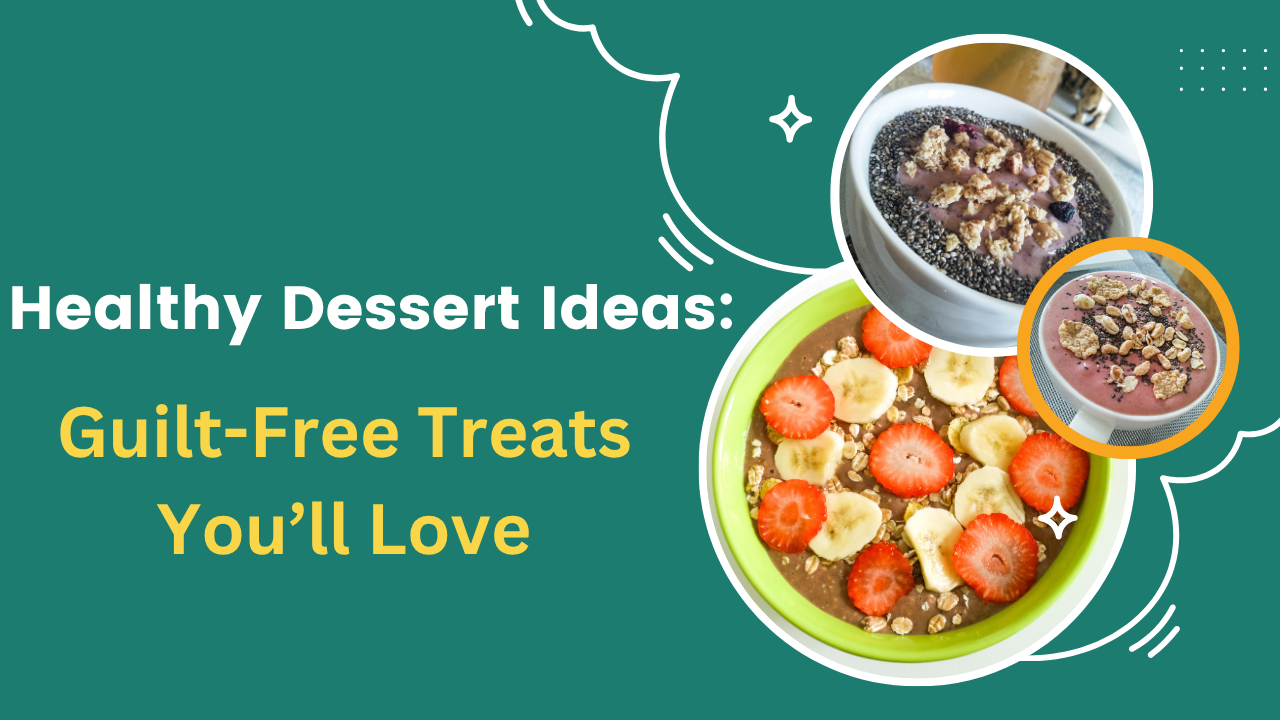Nutrition trends are constantly shifting, but some principles continue to prove their value. In 2025, vegan diets are making a major comeback—not just for ethical or environmental reasons, but as a powerful tool for natural fat loss. As people seek healthier, more sustainable ways to manage weight, plant-based eating is regaining attention for its simplicity and effectiveness.
Over the past few years, the wellness world has cycled through various weight loss trends—keto, intermittent fasting, carnivore diets, and high-protein plans. Despite the hype, many are now returning to plant-focused eating for its long-term benefits. This approach emphasizes whole foods, fiber-rich meals, and natural ingredients that support the body’s natural ability to burn fat.
Going vegan isn’t just about cutting out meat—it’s about fueling the body with nutrient-dense foods that support metabolism, reduce inflammation, and improve digestion. With better meal planning tools, new research, and exciting plant-based options, the vegan lifestyle in 2025 is more practical and powerful than ever.
Let’s explore why this shift is happening and how a plant-based lifestyle is helping people lose fat more naturally and sustainably than ever before.
1. The Science Behind Vegan Fat Loss

A vegan diet removes all animal-based products, including meat, dairy, and eggs. More than just avoiding these items, it focuses on whole, plant-based foods such as fruits, vegetables, legumes, whole grains, nuts, and seeds. These nutrient-dense options are naturally low in calories and high in fiber, which helps you feel full longer and supports steady fat loss. By emphasizing these wholesome foods, a vegan diet promotes a healthier metabolism and more effective, natural weight management.
Here’s why vegan diets promote fat loss:
Low-Calorie Density
One of the key advantages of a vegan diet for fat loss is its naturally low-calorie density. Plant-based foods like fruits, vegetables, legumes, and whole grains tend to have fewer calories per gram compared to animal products. This means you can eat larger portions and feel more satisfied without consuming excess calories. As a result, maintaining a calorie deficit—a key factor in fat loss—becomes easier and more sustainable, without the discomfort of constant hunger.
High Fiber Intake
Fiber is found exclusively in plant foods, and it’s one of the most important nutrients for effective fat loss. A high-fiber diet slows down digestion, helping to stabilize blood sugar levels and prevent energy crashes that lead to cravings. It also keeps you feeling full for longer periods, reducing the urge to snack or overeat. People following a vegan diet often consume significantly more fiber than those on typical omnivorous diets, making it easier to control hunger and manage weight.
Improved Gut Microbiome
A diet rich in plant fiber supports a diverse and balanced gut microbiome. Fiber acts as a prebiotic, feeding the beneficial bacteria in the digestive system. These microbes play a vital role in regulating body weight by improving metabolic health, reducing inflammation, and enhancing the body’s ability to burn fat. A healthy gut environment not only supports digestion but also contributes to better hormone balance and energy regulation.
Lower Insulin Resistance
Research has shown that vegan diets can improve insulin sensitivity, which is essential for effective fat loss. When the body responds well to insulin, it can better regulate blood sugar and avoid storing excess glucose as fat—particularly around the abdomen. Stable insulin levels help shift the body from fat-storing mode to fat-burning mode, making it easier to shed unwanted weight while supporting overall metabolic health.
2. Why Veganism is Trending Again in 2025
The rise of vegan diets in 2025 is no accident—it reflects major global shifts driving the movement forward. Growing awareness of health, climate change, and animal welfare has inspired more people to embrace plant-based living. Advances in nutrition science continue to highlight the fat-burning and metabolic benefits of vegan eating. At the same time, innovations in plant-based food options have made the lifestyle more convenient and enjoyable. Together, these trends have reignited interest in veganism as a powerful tool for health and fat loss.
A. Shift from Restrictive Diets
Over the years, many people have become frustrated with strict and unsustainable diet plans like extreme calorie counting, low-carb regimens, or one-food-focused fads. These approaches often lead to burnout and rebound weight gain. In contrast, a well-planned vegan diet offers a refreshing sense of freedom and abundance. With a wide variety of fruits, vegetables, grains, legumes, nuts, and seeds to choose from, it provides flexibility, flavor, and satisfaction—making it easier to stick with for the long haul.
B. The Rise of Plant-Based Innovation
In 2025, the plant-based food industry has seen a major transformation. Unlike previous years when options were limited to basic tofu or plain vegetables, today’s market is filled with innovative, nutritious, and delicious choices. From legume-based pasta and oat milk yogurt to mushroom-meat blends and clean-label snacks, these new offerings make it easier than ever to enjoy a balanced, exciting vegan diet without compromising taste or convenience.
C. Environmental Awareness
Growing concern over climate change, deforestation, and resource depletion has pushed more people toward eco-conscious living. A vegan diet has emerged as one of the most impactful ways to reduce environmental harm. By eliminating animal agriculture, individuals can significantly cut their carbon footprint, conserve water, and reduce land use. In 2025, more people are recognizing that their personal food choices affect not just their own health, but also the health of the planet.
D. Social Media and Influencer Culture
Social media has played a huge role in reshaping perceptions around veganism. Influential vegan athletes, fitness experts, chefs, and wellness coaches are using platforms like Instagram, TikTok, and YouTube to share their journeys and results. They’ve proven that plant-based diets can fuel muscle gain, fat loss, and peak performance. These real-life success stories have debunked old myths and motivated a new wave of people to embrace vegan living with confidence.
3. Key Fat-Burning Foods in a Vegan Diet
Contrary to common misconceptions, a vegan diet can provide ample protein, healthy fats, and essential nutrients needed for overall wellness. With the right mix of foods like legumes, tofu, tempeh, nuts, seeds, and whole grains, it’s entirely possible to meet nutritional needs without animal products. Many plant-based options are also rich in vitamins, minerals, and antioxidants that support energy, metabolism, and fat loss. A balanced vegan diet is not only nutrient-dense but also satisfying and sustainable for long-term health.

Here are the top plant-based foods that support fat loss:
Lentils and Beans
Lentils and beans are powerhouse foods packed with both protein and fiber, which help stabilize blood sugar levels and keep hunger at bay. The high fiber content aids in digestion, promotes a feeling of fullness, and supports a healthy gut. These legumes also provide a steady source of energy, making them an excellent choice for a balanced, satisfying meal that supports weight management and overall health.
Quinoa and Whole Grains
Quinoa and other whole grains offer complex carbohydrates that fuel metabolism and maintain steady energy throughout the day. Unlike refined grains, which can cause energy crashes and spikes in blood sugar, these whole grains release energy slowly, preventing hunger and boosting long-lasting stamina. They also contain fiber and essential nutrients like B vitamins and minerals, making them a key component of a balanced vegan diet.
Leafy Greens
Leafy greens like spinach, kale, and Swiss chard are incredibly low in calories but packed with essential micronutrients like vitamins A, C, and K, as well as minerals like iron and calcium. These greens support detoxification, reduce inflammation, and boost fat metabolism. Their high fiber content also contributes to feelings of fullness, making them an excellent choice for anyone looking to improve digestion and manage their weight naturally.
Avocados
Avocados are a rich source of healthy fats, particularly monounsaturated fats, which help reduce belly fat and improve heart health. These nutrient-dense fruits also promote satiety, helping to curb cravings and prevent overeating. In addition to healthy fats, avocados provide fiber, potassium, and antioxidants that support metabolism, regulate blood sugar levels, and maintain healthy skin and hair.
Berries
Berries, such as strawberries, blueberries, and raspberries, are rich in antioxidants that help protect the body from oxidative stress and reduce inflammation. Packed with fiber, they help regulate blood sugar levels and promote gut health. Berries are also low in calories, making them a great option for anyone looking to satisfy their sweet tooth while supporting weight management and fat loss.
Nuts and Seeds
Nuts and seeds, including almonds, chia seeds, flaxseeds, and walnuts, are rich in healthy fats, protein, and fiber, which help reduce cravings and stabilize blood sugar. When consumed in moderation, they provide a satisfying, nutrient-dense snack that supports heart health, boosts metabolism, and aids in fat loss. These foods are also packed with omega-3 fatty acids, which promote brain health and reduce inflammation.
Tofu and Tempeh
Tofu and tempeh are excellent plant-based protein sources, essential for maintaining muscle mass while burning fat. These soy-based products are rich in amino acids, which support muscle recovery and growth. Tofu is versatile and can be used in both savory and sweet dishes, while tempeh has a firmer texture and nutty flavor, making it ideal for grilling or adding to salads. Both help support overall metabolism and keep you feeling full longer.
4. Real Benefits of a Vegan Lifestyle Beyond Fat Loss
While fat loss might be the initial goal for many, people who go plant-based often experience several other benefits:
Clearer Skin
Antioxidant-rich plant foods like fruits, vegetables, and whole grains help improve skin tone by neutralizing free radicals that contribute to skin damage. These foods also reduce inflammation, a key factor in acne, and promote collagen production, which can slow signs of aging. With regular consumption, a plant-based diet can lead to healthier, glowing skin by fighting oxidative stress and encouraging skin renewal.
Higher Energy
Many people experience a boost in energy after switching to a vegan diet. Without the heaviness of meat and dairy, digestion becomes lighter and more efficient. Plant-based meals provide a steady stream of energy through complex carbohydrates, healthy fats, and proteins, ensuring that blood sugar levels stay balanced throughout the day. This can result in sustained energy, fewer midday slumps, and an overall sense of vitality.
Better Sleep
A vegan diet can contribute to improved sleep quality by reducing inflammation and promoting a cleaner, more balanced intake of nutrients. Certain plant-based foods, such as leafy greens, nuts, and seeds, contain magnesium and other minerals that help relax the body and mind, encouraging deeper and more restful sleep. Additionally, by avoiding heavy animal-based foods that can disrupt digestion, many find that they sleep more soundly through the night.
Lower Risk of Chronic Illness
Research has shown that following a vegan diet is associated with a reduced risk of developing several chronic diseases. Plant-based eating is linked to a lower incidence of heart disease, Type 2 diabetes, hypertension, and certain types of cancer. The high intake of fiber, antioxidants, and anti-inflammatory compounds found in plant foods helps support a healthy heart, regulate blood sugar, lower blood pressure, and protect against cellular damage, contributing to overall long-term health.
5. Busting Myths About Vegan Fat Loss
Let’s clear up some common misconceptions that keep people from trying a vegan diet for weight loss:
Myth 1: You Can’t Build Muscle on a Vegan Diet
This is a common misconception. In reality, many athletes and bodybuilders are thriving on a vegan diet, building and maintaining muscle mass just as effectively as those who consume animal products. The key is to include a variety of protein-rich plant foods in your meals, such as beans, lentils, tofu, quinoa, and plant-based protein powders. By combining different sources of plant protein, you can easily meet your daily protein requirements and support muscle growth, recovery, and overall strength.
Myth 2: Vegan Diets Are Always Low in Protein
While it’s true that some plant foods contain lower amounts of protein compared to animal products, it’s a myth that vegan diets are always low in protein. With proper planning, you can easily meet your protein needs on a plant-based diet. Many plant-based foods, such as lentils, chickpeas, quinoa, tofu, tempeh, and edamame, are excellent sources of protein. By incorporating a variety of these foods throughout the day, you can ensure that you’re consuming enough protein to support muscle repair, growth, and overall health.
Myth 3: Vegan Means Automatically Healthy
Switching to a vegan diet doesn’t automatically guarantee better health or fat loss. While plant-based foods can offer numerous health benefits, it’s still possible to fall into the trap of overeating processed vegan junk foods. Items like vegan cookies, fries, and sugary snacks may be free from animal products, but they can still be high in unhealthy fats, sugar, and empty calories. To achieve optimal health and fat loss, the focus should be on whole, nutrient-dense foods like vegetables, fruits, whole grains, legumes, and healthy fats.
6. Vegan Meal Plan for Fat Loss
Here’s a simple example of a vegan fat-loss meal plan:

Breakfast
Start your day with a nutrient-packed green smoothie made from fresh spinach, a ripe banana for natural sweetness, chia seeds for fiber and omega-3s, and almond milk for a creamy texture. Add a scoop of plant-based protein powder to give your body the protein it needs to start the day strong. This combination of ingredients will fuel your body with vitamins, minerals, and protein to keep you energized until your next meal.
Snack
For a satisfying mid-morning snack, enjoy a crisp apple paired with almond butter for healthy fats and protein. Alternatively, a handful of walnuts provides an excellent source of omega-3s, fiber, and antioxidants, offering a heart-healthy snack that will keep you full and focused until lunch.
Lunch
A wholesome quinoa bowl makes for a hearty and nutrient-dense lunch. Combine fluffy quinoa with protein-packed chickpeas, nutrient-rich kale, and roasted sweet potatoes for a satisfying meal. Drizzle tahini dressing over the top to add flavor, healthy fats, and additional vitamins and minerals. This balanced bowl provides a perfect mix of fiber, protein, and complex carbohydrates to fuel your afternoon.
Snack
For an afternoon snack, try crunchy carrot sticks paired with creamy hummus for a delicious and filling treat. Alternatively, grab a plant-based protein bar for a quick, on-the-go option that helps meet your protein needs while keeping you satisfied.
Dinner
End your day with a nourishing stir-fry featuring tofu as your protein source, mixed vegetables like bell peppers, broccoli, and carrots for vitamins and fiber, and brown rice for complex carbohydrates. A drizzle of low-sodium soy sauce adds flavor without the extra sodium, making this a satisfying and balanced dinner that supports your health goals.
Dessert (Optional)
If you’re craving something sweet, treat yourself to a bowl of fresh berries paired with a spoonful of coconut yogurt for a dairy-free indulgence. Alternatively, enjoy a small piece of dark chocolate (70% cocoa or higher) for a rich and satisfying dessert that’s packed with antioxidants and can curb your sweet tooth.
This kind of meal plan supports fat loss by balancing macronutrients, reducing inflammation, and providing sustained energy throughout the day.
7. Tips for Transitioning to a Plant-Based Lifestyle
If you’re considering switching to a vegan diet in 2025, here are practical tips to make the transition smoother:
Start Slow
Transitioning to a vegan diet doesn’t have to be an all-or-nothing approach. Start by incorporating 1-2 plant-based meals into your day rather than completely overhauling your diet overnight. This gradual approach allows you to adapt to new flavors, cooking methods, and food options at your own pace. As you get comfortable, you can slowly increase the number of plant-based meals until it becomes a natural part of your lifestyle.
Learn to Read Labels
Not all vegan foods are created equal. While a product may be vegan, it doesn’t necessarily mean it’s healthy. Many processed vegan foods, such as vegan cookies, chips, and sugary snacks, are loaded with unhealthy fats, added sugars, and artificial ingredients. When shopping, take the time to read ingredient labels carefully and opt for whole, minimally processed options that offer more nutritional value. Focus on foods that are naturally vegan, like fresh fruits, vegetables, grains, and legumes.
Supplement Smartly
While a well-planned vegan diet can provide most of the nutrients your body needs, certain nutrients may require additional attention. Consider supplementing with vitamin B12, which is primarily found in animal products, omega-3 fatty acids (from algae oil), and vitamin D, especially if you have limited sun exposure. These supplements help ensure you’re meeting your nutritional needs and supporting your long-term health while following a vegan diet.
Plan Ahead
Meal prep is a game-changer when transitioning to a vegan diet. Plan your meals and snacks for the week, and make sure you have healthy ingredients readily available. Keep your kitchen stocked with essentials like whole grains, legumes, fresh produce, and plant-based protein sources so you’re not tempted to grab less nutritious convenience foods. Having a variety of simple, go-to meals and snacks can make vegan eating easier and more enjoyable, even on busy days.
Join a Community
Support and motivation are key to staying committed to a vegan lifestyle. Consider following vegan influencers on social media, joining vegan support groups online, or using vegan recipe apps to stay inspired and connected. Being part of a community can provide helpful tips, new recipe ideas, and encouragement, making the transition smoother and more enjoyable. Sharing experiences with others also reinforces your commitment to your health goals.
8. Case Studies: Success Stories in 2025

Case 1: Emma, 34, Lost 22 lbs in 3 Months
Emma, a busy graphic designer, went vegan for ethical reasons but found that she had more energy, less bloating, and rapid fat loss without tracking calories obsessively.
Case 2: Jordan, 40, Body Recomp on a Vegan Plan
Jordan, a gym enthusiast, combined resistance training with a vegan high-protein plan and saw his body fat drop while gaining lean muscle over six months.
Case 3: Nadia, 55, Beat Menopause Weight Gain
Struggling with hormonal weight gain, Nadia shifted to a whole-food vegan plan focused on legumes, flaxseeds, greens, and soy foods. The results included improved mood, better sleep, and a 15-pound drop in body fat.
9. Future Outlook: Where Plant-Based Fat Loss is Headed
As we move further into 2025, we’ll likely see:
1. Smarter vegan tracking tools to calculate plant-based macros.
2. Functional superfoods like spirulina, moringa, and sea moss becoming more common.
3. Customized meal delivery services offering weight-loss focused vegan plans.
4. More medical acceptance of plant-based diets for managing obesity and metabolic issues.
Veganism is no longer just a niche—it’s entering the mainstream wellness conversation as a valid, science-backed solution for sustainable fat loss.

Conclusion
The return of veganism in 2025 is a clear signal: plant-based eating is more than a passing trend—it’s a powerful lifestyle transformation tool. Whether you’re looking to shed excess fat, support ethical food systems, or simply feel more energized every day, a vegan diet can help you get there.
Backed by research, amplified by technology, and embraced by a growing global community, plant-powered fat loss is changing lives. It’s not about being perfect. It’s about making progress—one plant-based plate at a time.
If you’re ready to burn fat the natural way, eat foods that nourish your body and the planet, and unlock a new level of health, there’s never been a better time to go vegan.
FAQs
1. Can a vegan diet help me lose weight ?
Yes! A vegan diet can promote fat loss, especially when focused on whole, plant-based foods like fruits, vegetables, legumes, and whole grains. These foods are naturally low in calories, high in fiber, and provide essential nutrients that support metabolism and fat burning. By prioritizing nutrient-dense meals, you can maintain a calorie deficit while staying full and satisfied.
2. Will I get enough protein on a vegan diet for fat loss ?
Absolutely! Many plant-based foods are rich in protein, such as lentils, chickpeas, quinoa, tofu, tempeh, and edamame. The key to ensuring adequate protein intake is to incorporate a variety of these foods throughout the day. With careful planning, a vegan diet can easily meet your protein needs for both fat loss and muscle preservation.
3. Do I need to count calories on a vegan diet for fat loss ?
While calorie counting is not strictly necessary, it can help some people stay on track with their goals. However, the natural low-calorie density of many plant-based foods means you can eat larger portions without overeating. Focus on whole, minimally processed foods to keep your meals filling and nutritious, which helps maintain a healthy calorie balance.
4. Are vegan diets healthy for long-term weight management ?
Yes! When done properly, a vegan diet can support long-term weight management. The emphasis on whole foods, fiber, and plant-based proteins helps maintain a healthy metabolism, regulate blood sugar, and reduce inflammation—key factors in sustainable fat loss. Plus, vegan diets are often rich in antioxidants and nutrients that promote overall well-being.
5. How can I transition to a vegan diet for fat loss ?
Start gradually by incorporating more plant-based meals into your daily routine. Begin with 1-2 plant-based meals per day and slowly replace animal products with plant proteins and whole grains. Plan your meals ahead of time to ensure you’re getting balanced nutrition, and consider joining online communities or consulting with a nutritionist for support during the transition.


